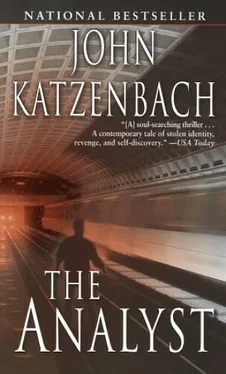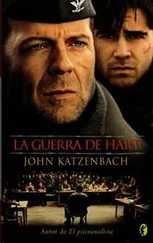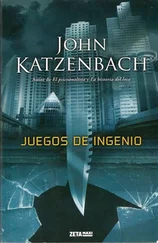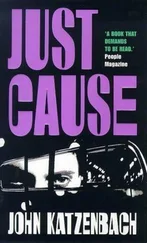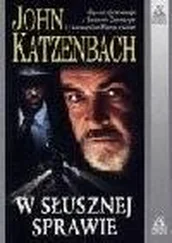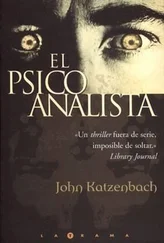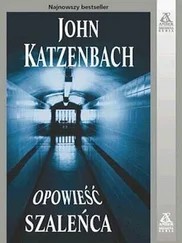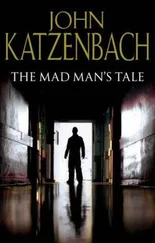He could sense his forehead knitting with surprise, and he adjusted the wire-rim glasses perched on his nose. “Curious,” he said out loud. And then he noticed the envelope left behind on the seat of the single stiff-backed chair he provided for patients waiting for their appointments. He exhaled slowly, shook his head back and forth, and thought this was a bit overly melodramatic, even for the membership of his current list of patients.
He stepped over and picked up the envelope. His name was typed on the outside.
“How unusual,” he said out loud. He hesitated before opening the letter, holding it up to his forehead the way Johnny Carson used to, when engaged in his Carnac the Magnificent routine, trying, in that instant, to guess which of his patients had left it for him. But it was an act that seemed uncharacteristic among the dozen he saw regularly. They all liked to voice their complaints about what they perceived as his many inadequacies and shortcomings directly and frequently, which while sometimes irritating, remained an integral part of the process.
He tore open the envelope and withdrew two sheets of paper filled with typing. He read only the first line:
Happy 53rd birthday, doctor. Welcome to the first day of your death.
He breathed in sharply. The stale air of the apartment seemed to make him dizzy, and he reached out quickly for the wall, to steady himself.
Dr. Frederick Starks, a man in the profession of introspection, lived alone, haunted by other people’s memories.
He walked over to his small, antique maple desk, a gift fifteen years earlier from his wife. It had been three years since she passed away, and when he sat down at the desk it seemed he could still hear her voice. He spread the two sheets of the letter out in front of him on the blotter. He thought to himself that it had been a decade since he’d actually been afraid of something, and what he’d been afraid of then was the diagnosis delivered by the oncologist to his wife. Now, this new dry, acid taste on his tongue was as unwelcome as the acceleration of his heart, which he could feel racing in his chest.
He took a second or two to try to calm the rapid beating, waiting patiently until he could feel the rate settle slowly. He was acutely aware of his loneliness at that moment, hating the vulnerability that solitude created within him.
Ricky Starks-he rarely let anyone know how much he greatly preferred the playground and frat house sound of the informal abbreviation to the more sonorous Frederick-was a man of necessary routine and order. He was devoted to a regularity that bordered on religion and certainly touched obsession; by imposing so much reason on his own day-to-day life, he thought it was the only safe way to try to make sense of the turmoil and chaos that his patients brought to him daily. He was a slight man physically, an inch or two short of six feet, with a thin, ascetic body helped by a daily lunchtime course of brisk walking exercise and a steadfast refusal to indulge in the sweets and ice creams that he secretly adored.
He wore glasses, which wasn’t unusual for a man his age, though he took pride in the detail that his prescription still was minimal. He took pride, as well, that although thinned, his hair still rode upright on his scalp like wheat on a prairie. He no longer smoked, and took only a rare glass of wine on an occasional evening to help him sleep. He was a man who had grown accustomed to his solitude, undaunted by eating dinner in a restaurant alone, or attending a Broadway show or current movie by himself. He thought the inventory of his body and mind to be in excellent condition. He felt far younger than his years most days. But he was acutely aware that the year he was entering was the year that his father had failed to live past, and despite that lack of logic in this observation, he had not thought that he would live past fifty-three, either, as if such an act would be unfair, or was somehow inappropriate. And yet, he thought contradictorily to himself, as he stared again at the first words of the letter, I am not yet ready to die. Then he read on, slowly, pausing over each sentence, allowing dread and disquiet to take root within him.
I exist somewhere in your past. You ruined my life. You may not know how, or why, or even when, but you did. Brought disaster and sadness to my every second. You ruined my life. And now I fully intend to ruin yours.
Ricky Starks breathed in hard again. He lived in a world common with false threats and fake promises, but knew immediately that the words in front of him were far different from those meandering rantings he was accustomed to hearing daily.
At first, I thought I should simply kill you to settle the score. Then I realized that was simply too easy. You are a pathetically facile target, doctor. You do not lock your doors during the day. You take the same walk on the same route Monday through Friday. On weekends, you remain wondrously predictable, right down to the trip out on Sunday morning to pick up the Times , an onion bagel, and a hazelnut coffee, two sugars, no milk, at the trendy coffee bar two blocks to your south. Far too easy. Stalking and killing you wouldn’t have been much of a challenge. And, given the ease with which this murder could be accomplished, I wasn’t certain that it would deliver the necessary satisfaction. I’ve decided I would prefer you to kill yourself.
Ricky Starks shifted uncomfortably in his seat. He could feel heat rippling up from the words in front of him, like fire catching in a woodstove, caressing his forehead and cheeks. His lips were dry, and he fruitlessly ran his tongue over them.
Kill yourself, doctor. Jump from a bridge. Blow your brains out with a handgun. Step in front of a midtown bus. Leap in front of a subway train. Turn on the gas stove and blow out the pilot light. Find a convenient beam and hang yourself. The method you choose is entirely up to you. But it is your best chance. Your suicide will be far more appropriate, given the precise circumstances of our relationship. And certainly a far more satisfying method for you to pay off your debt to me. So, here is the game we are going to play: You have exactly fifteen days, starting tomorrow morning at six a.m., to discover who I am. If you succeed, you must purchase one of those tiny one-column ads that run along the bottom of the daily New York Times front page, and print my name there. That’s all: Just print my name. If you do not, then… well, this is the fun part. You will take note that the second sheet of this letter contains the names of fifty-two of your relatives. They range in age from a newborn, barely six months old, the child of your great-grand-niece, to your cousin the Wall Street investor, and capitalist extraordinaire, who is as dried-up and dull as you. If you are unable to purchase the ad as described, then you have this choice: Kill yourself immediately or I will destroy one of these innocent people. Destroy. What an intriguing word. It could mean financial ruin. It could mean social wreckage. It could mean psychological rape. It could also mean murder. That’s for you to wonder about. It could be someone young, or someone old. Male or female. Rich or poor. All I promise is that it will be the sort of event that they-or their loved ones-will never recover from, no matter how many years they might spend in psychoanalysis. And whatever it is, you will live every remaining second of every minute you have left on this earth with the knowledge that you alone caused it. Unless, of course, you take the more honorable approach and kill yourself first, saving whichever target I have selected from their fate. There’s your choice: my name or your obituary. In the same paper, of course. As proof of the length of my reach, and the extent of my planning, I have this day contacted one of the names on the list with a most modest little message. I would urge you to spend the remainder of this evening ferreting out who was touched, and how. Then you can begin on the true task before you without delay in the morning. I do not, of course, truly expect you to be able to guess my identity. So, to demonstrate that I am a sporting type, I’ve decided that from time to time over the next fifteen days I will provide you with a clue or two. Just to make things more interesting, although a clever, intuitive sort, such as yourself, should assume that this entire letter is filled with clues. Nevertheless, here is a preview, and it comes for free.
Читать дальше
